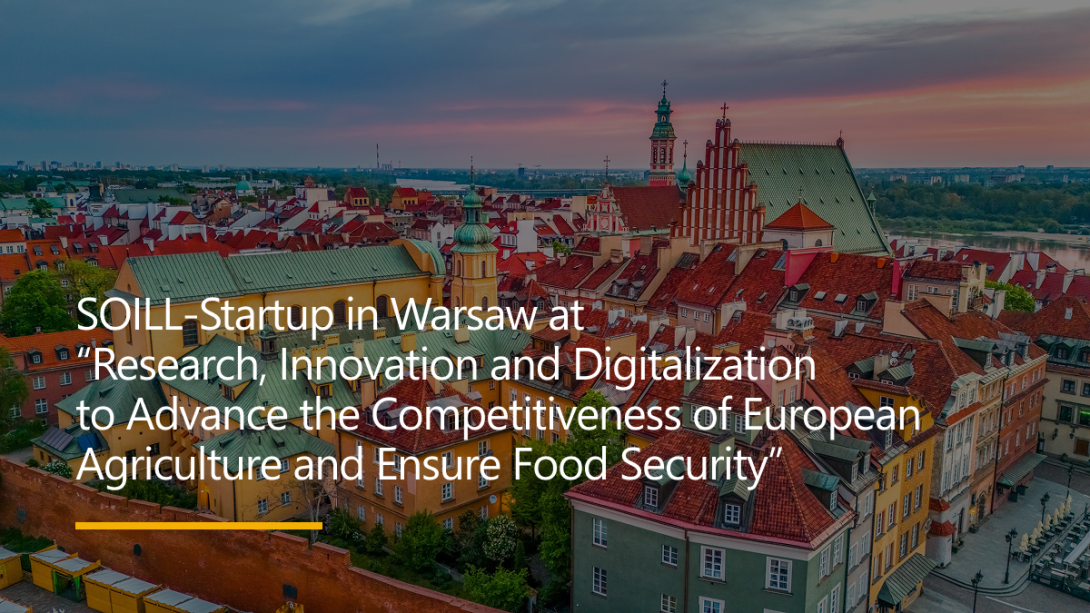High-level conference of the Polish Presidency of the EU Council
PROGRAMME

SOILL-Startup and the European Network of Living Labs (ENoLL) will participate in the thematic outlook session "Research and Innovation for Natural Resource Sustainability: Soil Health, Freshwater, Climate – The Importance of Research and Innovation for Soil and Water Sustainability, Aligning with the EU Soil Mission, and Broader Objectives of Sustainable Resource Management", within the high-level R&I conference under the Polish Presidency of the Council of the European Union on 11 June 2025.
Organised by the Ministry of Agriculture and Rural Development – in cooperation with the European Commission, the Standing Committee on Agricultural Research (SCAR), and the BIOEAST Initiative – the conference creates a platform for high-level discussion on the challenges for science-policy in the context of the new European Commission's Vision for Agriculture and Food, as well as the life sciences and bioeconomy strategies.
The aim is to address and exchange views on the role of research and innovation in strengthening the green and digital transformation of the agri-food sector, as well as the circular bioeconomy in the BIOEAST and CEE regions and across the EU.
Represented by ENoLL Director Martina Desole, SOILL-Startup and ENoLL will take part in the panel discussion on 11 June to present their perspective on the topic "Living Labs in Implementing Soil Regeneration". The session will highlight the research and innovation needs for soil and water management within the broader context of sustainable resource use. It will recognise that many pioneering farmers and land stewards across Europe are already successfully applying regenerative practices for soil and water. However, the session will also address ongoing challenges, particularly in areas such as soil regeneration and the integration of soil and water management into the wider framework of natural resource sustainability and climate resilience.
Lastly, the session will emphasise the connection between the bioeconomy – including biomass conversion – and soil health, highlighting the importance of incorporating soil management into circularity strategies.